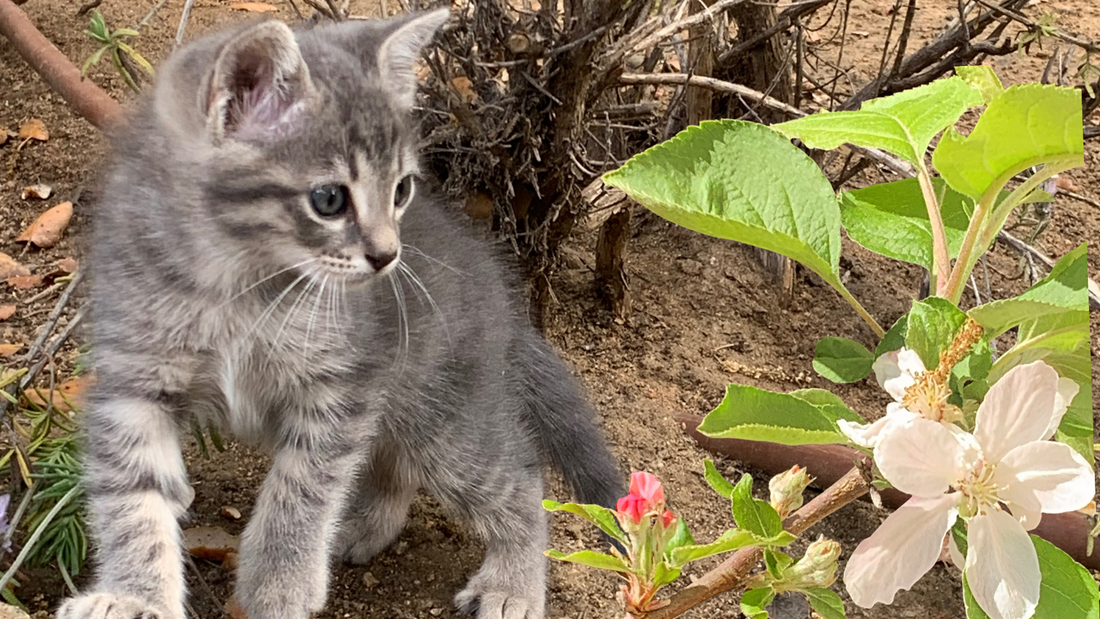
Why Do Cats Hiss?
Share
I love cats, I find them fascinating creatures and they come with a variety of behaviors that can sometimes be puzzling to their owners. One such behavior is hissing. If you've ever wondered, "Why do cats hiss?" you're not alone. Here's a comprehensive look at why cats exhibit this behavior.
Understanding Cat Hissing
Hissing is a form of communication in cats, and it's often misunderstood. While it may seem aggressive, hissing is usually a defensive behavior. When a cat hisses, it is essentially saying, "Back off!" This response is triggered by feelings of fear, discomfort, or distress. Here are some common reasons why cats hiss:
1. Feeling Threatened
- Cats hiss when they feel threatened by another animal or person. This could be due to the presence of a new pet, an unfamiliar visitor, or even a loud noise.
2. Pain or Discomfort
- A cat in pain or experiencing discomfort may hiss as a way to protect itself. If your cat hisses when touched in a specific area, it might be in pain and should be checked by a veterinarian.
3. Territorial Behavior
- Cats are territorial animals. They may hiss to protect their space from other cats or animals. This behavior is often seen when a new cat is introduced to the household.
4. Lack of Socialization
- Cats that haven't been properly socialized may hiss more frequently. They may not be used to human interaction or other animals and hiss out of fear.
5. Stress and Anxiety
- Changes in the environment, such as moving to a new home or changes in routine, can cause stress and anxiety in cats, leading to hissing.
How to Respond to a Hissing Cat
1. Give Them Space
- If your cat is hissing, the best thing to do is give it space. Allow the cat to retreat and calm down.
2. Identify the Trigger
- Try to identify what is causing the hissing. Is it a new pet? A stranger in the home? Once you identify the trigger, you can take steps to reduce your cat’s stress.
3. Approach Slowly
- If you need to approach a hissing cat, do so slowly and calmly. Avoid making sudden movements or loud noises that could further stress the cat.
4. Provide a Safe Space
- Ensure your cat has a safe, quiet place to retreat to. This can help reduce their stress levels.
5. Consult a Veterinarian
- If your cat’s hissing is accompanied by signs of pain or if it becomes a frequent behavior, consult your veterinarian to rule out any medical issues.
Understanding why cats hiss can help you better respond to their needs and create a more harmonious environment for your feline friend. Remember, hissing is a natural response and not necessarily a sign of aggression. By respecting your cat's boundaries and addressing any underlying issues, you can help your cat feel safe and secure.
For more tips on understanding and caring for your cat, explore our other articles on feline behavior and health.
Understanding Cat Hissing
Hissing is a form of communication in cats, and it's often misunderstood. While it may seem aggressive, hissing is usually a defensive behavior. When a cat hisses, it is essentially saying, "Back off!" This response is triggered by feelings of fear, discomfort, or distress. Here are some common reasons why cats hiss:
1. Feeling Threatened
- Cats hiss when they feel threatened by another animal or person. This could be due to the presence of a new pet, an unfamiliar visitor, or even a loud noise.
2. Pain or Discomfort
- A cat in pain or experiencing discomfort may hiss as a way to protect itself. If your cat hisses when touched in a specific area, it might be in pain and should be checked by a veterinarian.
3. Territorial Behavior
- Cats are territorial animals. They may hiss to protect their space from other cats or animals. This behavior is often seen when a new cat is introduced to the household.
4. Lack of Socialization
- Cats that haven't been properly socialized may hiss more frequently. They may not be used to human interaction or other animals and hiss out of fear.
5. Stress and Anxiety
- Changes in the environment, such as moving to a new home or changes in routine, can cause stress and anxiety in cats, leading to hissing.
How to Respond to a Hissing Cat
1. Give Them Space
- If your cat is hissing, the best thing to do is give it space. Allow the cat to retreat and calm down.
2. Identify the Trigger
- Try to identify what is causing the hissing. Is it a new pet? A stranger in the home? Once you identify the trigger, you can take steps to reduce your cat’s stress.
3. Approach Slowly
- If you need to approach a hissing cat, do so slowly and calmly. Avoid making sudden movements or loud noises that could further stress the cat.
4. Provide a Safe Space
- Ensure your cat has a safe, quiet place to retreat to. This can help reduce their stress levels.
5. Consult a Veterinarian
- If your cat’s hissing is accompanied by signs of pain or if it becomes a frequent behavior, consult your veterinarian to rule out any medical issues.
Understanding why cats hiss can help you better respond to their needs and create a more harmonious environment for your feline friend. Remember, hissing is a natural response and not necessarily a sign of aggression. By respecting your cat's boundaries and addressing any underlying issues, you can help your cat feel safe and secure.
For more tips on understanding and caring for your cat, explore our other articles on feline behavior and health.
